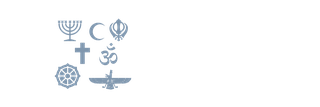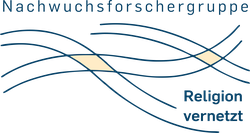Crosscutting Religion. A survey of (migrant) religious intergroup relations in the Ruhr area of North Rhine-Westfalia, Germany

Context
In Germany, the late acknowledgement of being a country of immigration coincides with a growing visibility of and a collectively perceived threat posed by Islam. As a result, omnipresent sociopolitical discourses about migrant organizations, social cohesion and social relations exhibit a strong emphasis on religion nowadays.
Social researchers are discovering with increasing frequency the relevance of religious organizations for the social embeddedness and connectedness of people with an immigrant background. So far, research in this area has been limited to exclusive analyses of the links religious organizations have with with either political actors and institutions or actors of the same religious or ethnic group.
Research into the networking between corporate actors of different religious affiliations would be especially interesting for various reasons. For example, it might shed light on processes of boundary crossing between different identity groups. Moreover, it could provide insight into the establishment of relationships of solidarity and trust beyond cultural differences. However, analyses of interreligious relationships between corporate actors have so far only been conducted from a historical perspective.
Research Question
In my research project, I aim at illuminating the present relations between formally organized religious communities. In this framework, I pursue two theoretically and empirically interdependent goals. First, I will provide a description, delineation and comparison of the networking of religious organizations (formal religious communities and religious associations) in a selection of two cities in the Ruhr region of Germany. Second, questions concerning different factors which affect corporate actors’ efforts in interreligious networking will be addressed. In this context, I will analyze in what way these factors relate to specific networking processes or network structures.
The following questions guide my research: What do the networks of corporate religious actors look like in a religiously pluralistic conurbation? How can we interpret the structure of these networks? Do different religious (migrant) organizations cooperate? If they do, under what conditions is this cooperation realized? What kinds of conducive and impedimental influences are there? In summary, I generally focus on an empirical answer to the question:
What connects organizations of different religious affiliations and how?
Method
This project will expand the scientific knowledge concerning interreligious corporate relations through the analysis of the interplay of local, social, political, normative and cultural factors in this context. Furthermore, it will investigate social and symbolic boundaries in the realm of religious corporate action as well as transformations and crossings of these boundaries. Therefore, it is based on theories of social boundaries (Alba 2005; Lamont/Molnár 2002), political and normative opportunity structures and a pragmatic relational perspective.
On the one hand, the research project offers a comparison of the inner-city networking of religious associations and formal religious communities (congregations, churches, temples etc.) across two cities in the Ruhr region. On the other hand, various ego-centered corporate networks of religious organizations in and beyond these cities will be contrasted.
The project offers a combination of quantitative and qualitative methods of social research. Data collection rests on three instruments: participant observation, standardized questionnaires and semi-structured expert interviews. Participant observation in this context is mainly a means of identifying relevant actors and influential aspects around them. The questionnaires serve as a tool for gaining network data. Additional data about actors and content of relations as well as motivations and other influences on networking will be conducted via semi-structured expert-interviews. Apart from that, the triangulation (Flick 2010) provides the basis for a more critical interpretation and validation of the network data.

